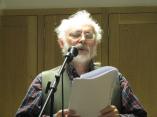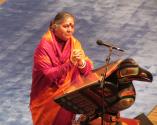A second chance this morning to listen to the listenable David Suzuki, whose one hour special The Last Call is, happily, available on podcast. He took a look at our illusions about the immutability of the consumer economy and its effect on the planet’s limited resources.
Along the way he spoke to the Canadian CEO of Wal-Mart, trying to get him to answer whether he thought infinite growth of a consumer-based business was realistic (got the usual hoo-ha about how Wal-Mart is only serving the wishes of a buying public and what a wonderful thing the company is doing for people who can’t afford to pay more) (maybe someone should send this guy a copy of Cheap: The High Cost of Discount Culture?).
And to the wonderful Annie Leonard, whose The Story of Stuff is an excellent use of any spare 20 minutes you might have, and who clarified mr. Wal-Mart’s delusions about the real cost – to the environment and communities who produce and sell them – of cheap goods. And she remained, like Suzuki, stubbornly optimistic that we can change the way we live, but not by simply altering our consumerism (what can I buy to make things better) but by enlisting the power of community. With the ultimate goal of living happier and more convivial lives.
Not so optimistic is James Lovelock, father of The Gaia Theory, which proposed reasons for the interrelatedness of our ecosystem, and who holds that politics gets in the way of the possibility of any real positive change in our destructive use of the planet; put simply, politicians cannot take the measures needed and get re-elected, because so much drastic change in our ways of life is needed at this point. So his interests are more focused on how to survive the consequences of our environmental irresponsibility. (His latest book is The Vanishing Face of Gaia.)
Al Gore, of course, is on the positive side of the argument that salvation is possible, and has more faith than most in the political system’s ability to produce sudden radical change in times of need. Let us hope he is right.









